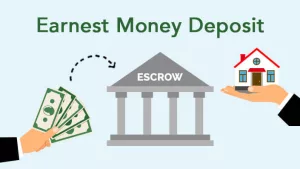Rent-to-Own in NYC in 2025
Go Back To Previous PageRead our guide if you’ve ever considered buying or selling a home using a rent-to-own agreement or programs in NYC. Rent-to-own homes and apartments remain relatively rare in NYC due to co-ops and banks’ strict financial requirements around debt-to-income ratios and post-closing liquidity.
However, this format allows a tenant with a high income to save enough for a down payment, closing costs, and post-closing liquidity.
What Does Rent-to-Own Mean?
Although uncommon, a rent-to-own agreement is one way to buy or sell a home in New York City. This model allows prospective first-time homebuyers to enter a rental agreement or lease (‘rent-to-own contracts’ or’ rent-to-own lease’) with a property owner for a specified lease term, typically one to three years.
allows prospective first-time homebuyers to enter a rental agreement or lease (‘rent-to-own contracts’ or’ rent-to-own lease’) with a property owner for a specified lease term, typically one to three years.
At the end of the lease, the renter has either an option or an obligation to purchase the unit, depending on the deal’s terms. Buying or selling your home using a rent-to-own model is typically arranged in one of two ways, with an important distinction.
These transactions are more complex than regular sales and entail multiple contracts instead of just one. You’ll need a rental agreement, a purchase contract, and an option/obligation-to-buy contract.
The Two Ways to Rent-to-Own in NYC
How do rent-to-own models work? The most significant distinction is the renter’s obligation vs. the option to purchase at the end of the lease term.
of the lease term.
1. Lease-purchase agreement
When a buyer enters into a lease-purchase agreement, they agree to purchase the property at the end of the lease. Typically, the buyer and seller agree upon a pre-determined purchase price. This could be the fair market value at the end of the lease term plus some agreed-upon premium.
A lease-purchase agreement is similar in length and complexity to a regular purchase and sale contract in New York.
The seller can credit some, none, or even all of the rent payments towards the buyer’s down payment. At the end of the lease agreement, the tenant must buy the property at a pre-determined price, which may be the apartment’s market value at the beginning of the lease term.
Or the price could be based on another metric, such as an appraisal.
2. Lease option contract.
The lease option contract offers the buyer a more flexible option. The distinction between the two agreements is simple. With a lease option contract, the renter is not obligated to purchase the unit at the end of the lease term; the renter may choose whether they wish to proceed with the home sale or drop.
distinction between the two agreements is simple. With a lease option contract, the renter is not obligated to purchase the unit at the end of the lease term; the renter may choose whether they wish to proceed with the home sale or drop.
With this agreement, the renter pays a premium for their option, and the owner can keep it at the end of the lease if the renter chooses to waive the option to purchase.
This model is attractive for owners and prospective first-time home buyers because the parties may incorporate a “rent premium.” This rent premium will allow owners to collect above-market rents. A percentage of the extra money may be put towards closing costs or a down payment if the renter exercises their option.
If the tenant waives the right to buy, the lease option contract expires, and the owner keeps all the rental income plus the option premium.
When Should a Buyer Consider Rent-to-Own Apartments in NYC?
Some aspects of the rent-to-own property in NYC are attractive to particular buyers for several reasons.
This represents a great option if you’re in the market for a new home but don’t have enough liquid cash for a down payment. Paying the rent premium for three years is a practical way to save for a down payment while you settle into your new home. This is good leverage in a buyer’s market.
Buyers may also consider the rent-to-own option when they’re ready to buy a home but don’t qualify for financing due to a low credit score. The lease term gives the tenant time to devise a down payment, allowing buyers to improve their debt-to-income ratio to qualify for home loan financing.
However, it’s essential to remember that if the buyer decides not to purchase the unit at the end of the lease term, the owner will walk away with the extra cash.
When Should a Seller Consider Rent-to-Own in NYC?
Rent-to-own can make sense for condos, houses, pied-a-terre sellers, or even co-ops with lenient coop financial requirements if they can’t find anyone else to sell to. It makes sense if this is the only deal, and they aren’t rushing to sell.
to. It makes sense if this is the only deal, and they aren’t rushing to sell.
The seller benefits from earning higher rent than the market rate. In addition, the seller owns an option premium and can keep the cash if the tenant doesn’t exercise the buy option or defaults on the purchase contract.
In other words, the seller will get paid above market for renting their apartment. This remains true even if the tenant doesn’t purchase the property at the end of the lease term.
What Should Sellers Know?
The rent-to-own home model isn’t always a seller’s best option. If a seller cannot attract other offers, they should critically assess their situation and consider offering a rent-to-own option to prospective buyers. Negotiating a rent premium could put extra money in their pockets each month since they get paid above-market rent for the unit.
There is another glaring reason the rent-to-own apartment model isn’t always attractive for sellers. Buyers wishing to enter these agreements are almost always financially unqualified as home buyers. Specifically, these buyers are either not qualified for financing or can’t come up with a down payment. Those are certain factors that a seller should consider when considering selling their property through a rent-to-own agreement.
Buyers and sellers should also note that these transactions are much more complex than traditional real estate deals and are sure to rack up substantial legal fees in negotiations, contract drafting, and closing costs.
Call your real estate agent to rent a house with the option to buy. Your broker will send free rent-to-own property listings to review.
Disclaimer: The material and information contained in this article are for informational purposes only. It would be best not to rely on material or information to make business, legal, tax, or other decisions.


